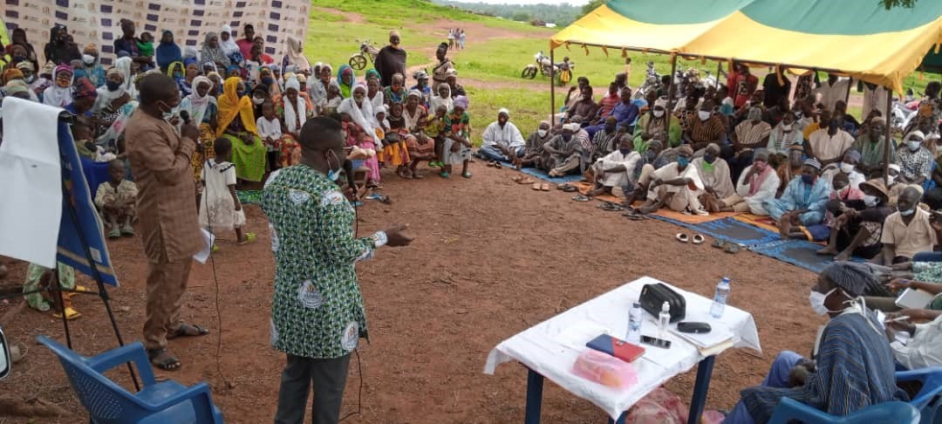The National Commission for Civic Education (NCCE) has said over-dependence on the central government for all development needs of communities across the country was creating underdevelopment and deepening the poverty cycle.
According to the Commission, it is imperative for communities to initiate and seek support for development projects as government alone could not bear the responsibility of meeting the needs of every community.
Mr Pontius Pilate Baba Apaabey, the Upper East Regional Director of the Commission, made the call at Sokabisi in the Bolgatanga Municipality, during a social auditing forum organized by the NCCE with financial support from the European Union (EU).
According to the Regional Director, the era and age in which government could meet the needs of every community was over and called on communities in the region to initiate projects and take steps to seek for assistance to complete them to improve their lives.
This, he said, would enable the communities to take ownership of the project, support its implementation to promote quality of work and to protect it.
It would also contribute to reducing corruption and instilling the values of communal labour, nationalism and patriotism.
The social auditing forum was part of the implementation of the Commission’s flagship programme, Accountability, Rule of Law and Anti-Corruption Programme (ARAP).
It aims to reduce corrupt practices, ensure transparency, improve accountability and promote good governance. Mr Apaabey called on the citizens to get involved in the development of their communities and to demand accountability from duty-bearers.
Mrs Felicity Thelma Akana, the Assistant Director II B, who spoke on behalf of Mr Mahamadu Azonko, the Regional Coordinating Coordinator, urged the community to employ social auditing to ensure good governance.
She said, “Social auditing is a way of measuring, understanding, reporting and improving an organization’s social and ethical performance. The District Assembly is responsible for the overall development of communities within their jurisdiction and the coordinating council cannot monitor their performance without the citizens’ participation.”
The members of the community prioritized the construction of a Kindergarten classroom block for the Sokabisi basic school. They also formed a five-member social audit implementation committee to work together to address the challenge.
Latest Stories
-
Bridging the skills gap: Ghana’s imperative shift towards TVET to combat graduate unemployment
1 hour -
Chief Imam calls for an end to Gaza atrocities in Eid-Al-Adha message
3 hours -
High Court restrains GRNMA from continuing with strike for 10 days
5 hours -
Bole gets new DVLA office
5 hours -
CCCFS applauds Mahama’s environmental pledges, urges stronger waste management measures
5 hours -
Uphold integrity in engineering – IET President charges newly inducted professionals
6 hours -
World Menstrual Hygiene Day: ofi distributes reusable sanitary pads with impactful celebrations at Konongo-Odumase SHS
7 hours -
Ukraine and Ghana to deepen cooperation in cybersecurity and digital innovation
7 hours -
Daily Insight for CEOs: Data-driven decision-making – A CEO’s edge in uncertainty
7 hours -
This Saturday on Newsfile: GH¢1 fuel levy and OSP declaring Ofori-Atta wanted again
8 hours -
Mahama announces steps to improve Islamic education nationwide
8 hours -
Eidul al-Adha: Drugs worse than alcohol – Imam Suleman warns Muslim youth
8 hours -
Fuel Levy: What crime have Ghanaians committed? – Dr Amin Adam questions gov’t
10 hours -
Postecoglou sacked by Spurs after Europa League win
10 hours -
Employee fraud is everywhere, be intentional about stopping it – Expert counsels
11 hours

